6. Oldboy (2003, Park Chan-wook)
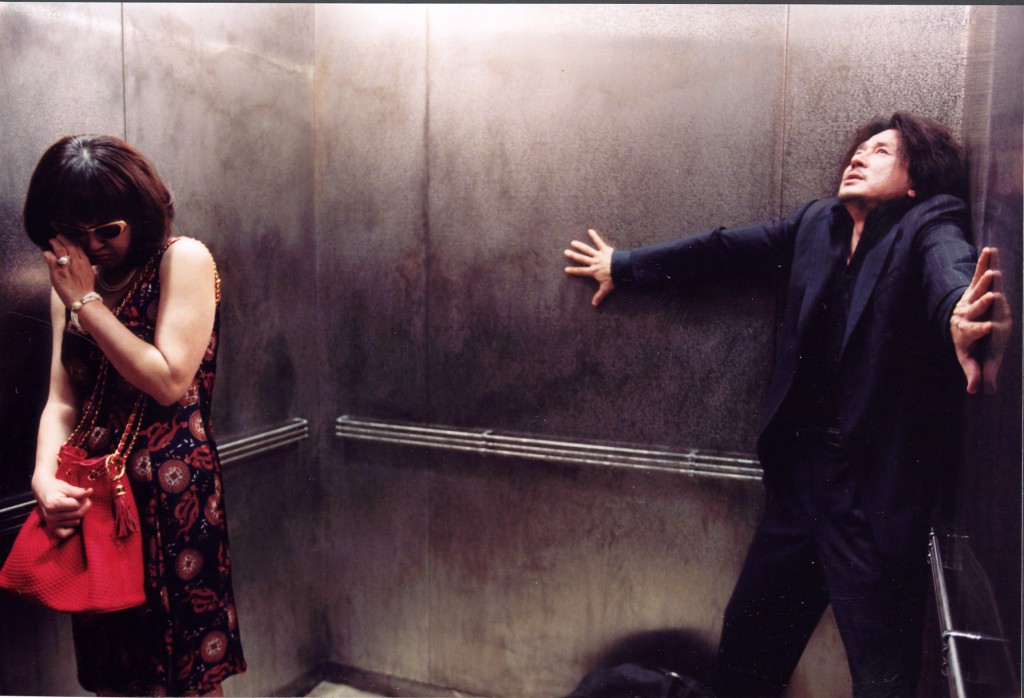
There’s practically nothing you can say about Oldboy that hasn’t already been said. This is easily the most well-known South Korean film, period. Its success has resulted in award recognition, retroactive critical fervor, and a Spike Lee remake. It almost feels pointless to discuss the film any further, but this is a list about South Korean masterpieces, and Oldboy effortlessly fits the description.
Park Chan-wook’s filmography is exhaustive. Films like Thirst, Stoker, and Lady Vengeance have earned plenty of critical acclaim, but they didn’t rock the world like Oldboy. Park’s brutal neo-noir mystery is one of the best in its category. It may lack the subtlety of the competition, but it makes up for that with thrilling, hard-hitting bloodshed at every opportunity. The in-your-face action scenes aren’t made for squeamish viewers, but there’s an audience that will lap this sort of thing up.
It’s unfair to claim that Oldboy’s success comes as a direct result of entertaining violence. This is more than just a collection of well-choreographed action scenes. It’s an emotionally complex thriller that grabs you by the collar and demands your attention. It depicts human depravity in a way that feels fresh to this day.
With all of that out of the way, it should be no surprise that Oldboy remains influential nearly two decades later. Though you could argue that Park’s directorial style is the real influence here, Oldboy is his defining feature film. Modern revenge thrillers owe a lot to this gory South Korean classic. Its status as a masterpiece is nearly undisputed.
7. Parasite (2019, Bong Joon-Ho)
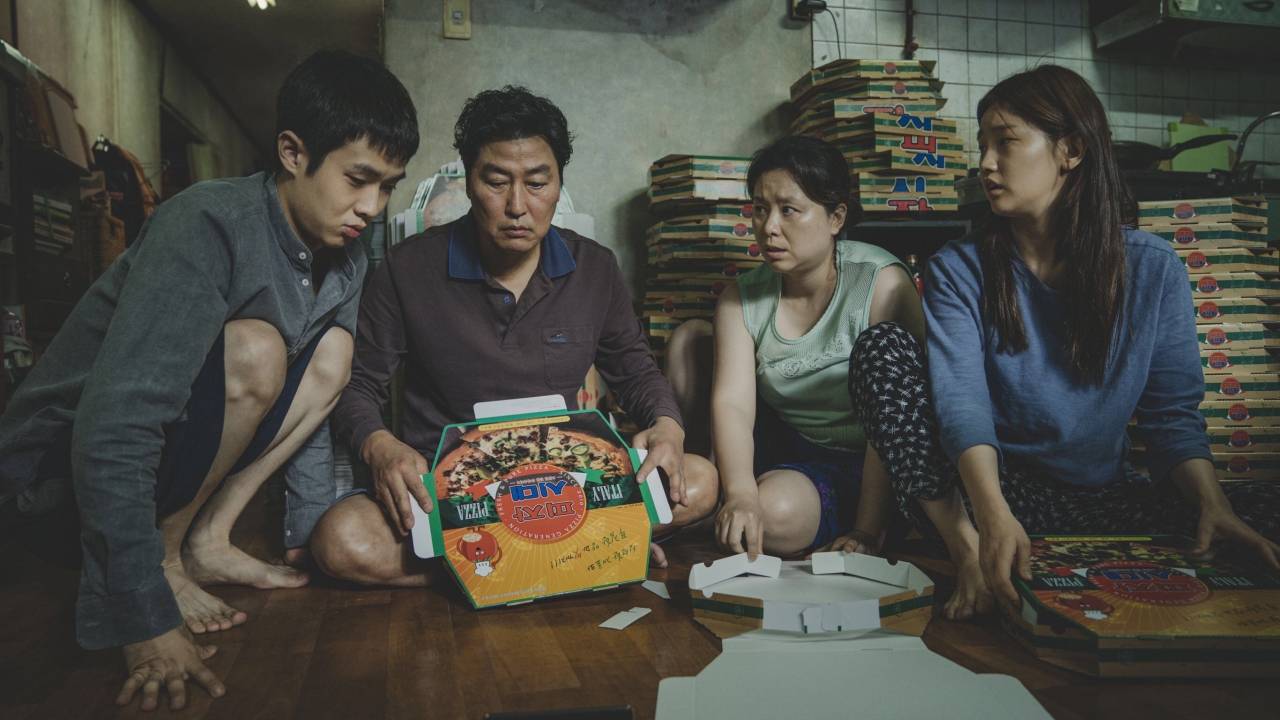
By now, an overwhelming majority of readers know about Parasite. Hell, an overwhelming majority of readers have probably seen Parasite. Though Bong Joon-Ho has never been obscure, this is the film that really brought him into the mainstream. Forget about Snowpiercer, The Host, and Okja. Parasite made Bong Joon-Ho a household name.
Let’s set aside the award recognition for a moment. Parasite isn’t a good movie because it won Best Picture at the Academy Awards. It’s a good movie because of its timely themes, sharp-witted script, and moody atmosphere, but you already knew that. On one hand, it’s easy to jump on the hate-bandwagon when something becomes popular. On the other, it’s hard to complain about something that is so expertly crafted. This is essential viewing, plain and simple.
8. Save the Green Planet (2003, Jang Joon-hwan)
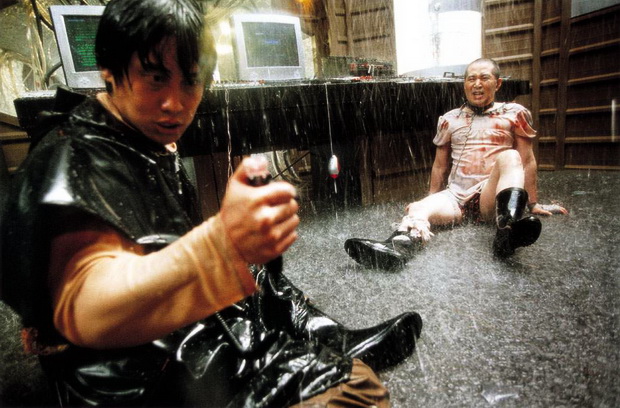
This list consists primarily of heavy-handed dramas about classism, marxism, and just about every other ism in the book. While Save the Green Planet is not vapid by any means, it does come across as significantly lighter compared to pretty much every entry. At its most basic, it’s a kooky sci-fi comedy. After digging beneath the surface, you’ll find a visually breathtaking hybrid of various genres that somehow never loses sight of its identity.
Save the Green Planet should be a tonally inconsistent mess. It furiously switches between black comedy, horror, and drama. In most cases, that would be a massive flaw. Oddly enough, this zigzagging feels natural. Surprisingly, this is a film with a clear identity. That identity may consist of numerous other identities, but it all works.
Again, it’s not a groundbreaking analysis of human nature by any means. There’s definitely a message, but that message takes a backseat to antics. These antics make it far zanier than everything else listed. Luckily, that zaniness allows it to stand out. It may not change your life, but you’ll never see anything like it.
9. Spring, Summer, Fall, Winter… and Spring (2003, Kim Ki-duk)
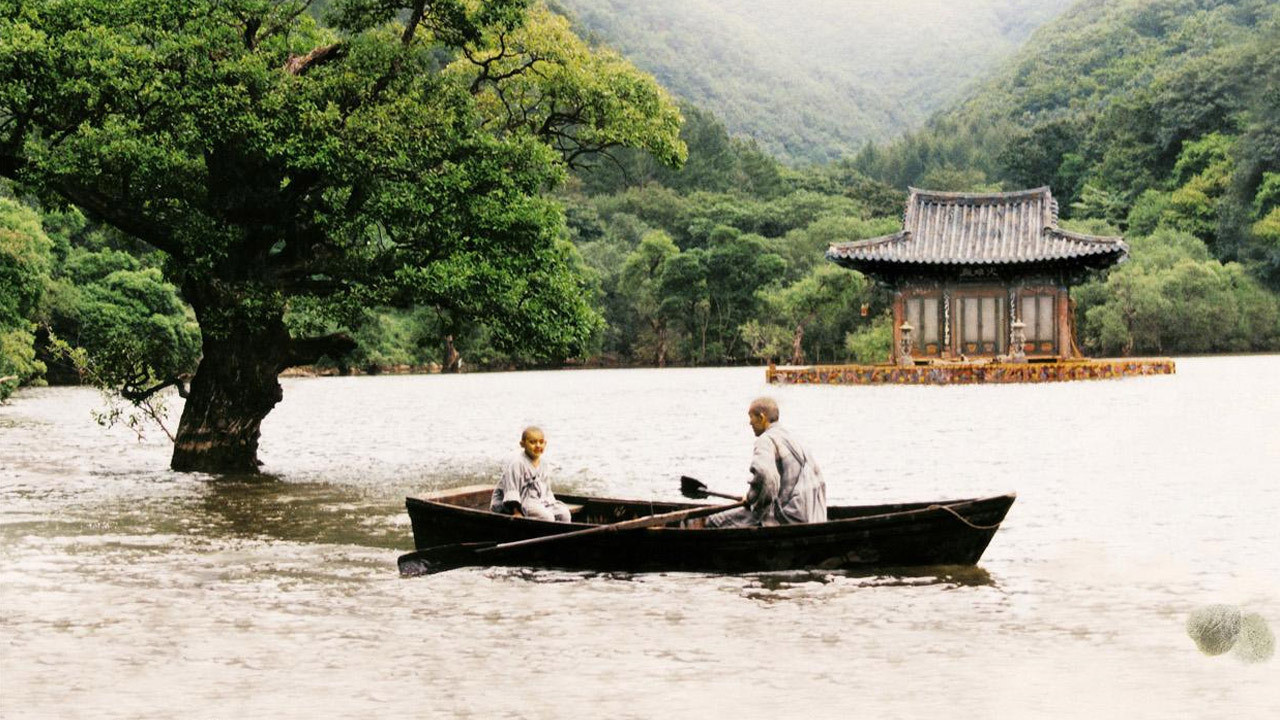
Casual moviegoers may find Spring, Summer, Fall, Winter… and Spring to be a pretentious slog. If you are not the type of person to enjoy quiet ruminations on life, you might as well read about the next entry on the list instead. This is not for you. If, however, you’re looking for a thought-provoking tale that tackles complex topics like discipline, masculinity, and maturation, keep reading.
Director Kim Ki-duk’s magnum opus focuses on the relationship between a Buddhist monk and his mentor. Split into five segments (each named after a season), viewers are tasked with watching a young boy grow up and face unimaginable challenges. As the story unfolds, these challenges are presented alongside stunning imagery in order to enhance the thematically complex storytelling. This results in a cohesive unit that checks all the right boxes.
At the same time, this can be a challenging movie to sit through, and it’s not just because of the aforementioned slow pacing. The first half-hour seems innocent enough, but as the story progresses, the melancholic tone becomes almost overwhelming. Luckily, the profound astuteness of the subject matter prevents the downcast tone from feeling like a detriment. On the contrary, every decision made by the case and crew only enhances this heartbreaking piece of South Korean cinema.
10. The Wailing (2016, Na Hong-jin)
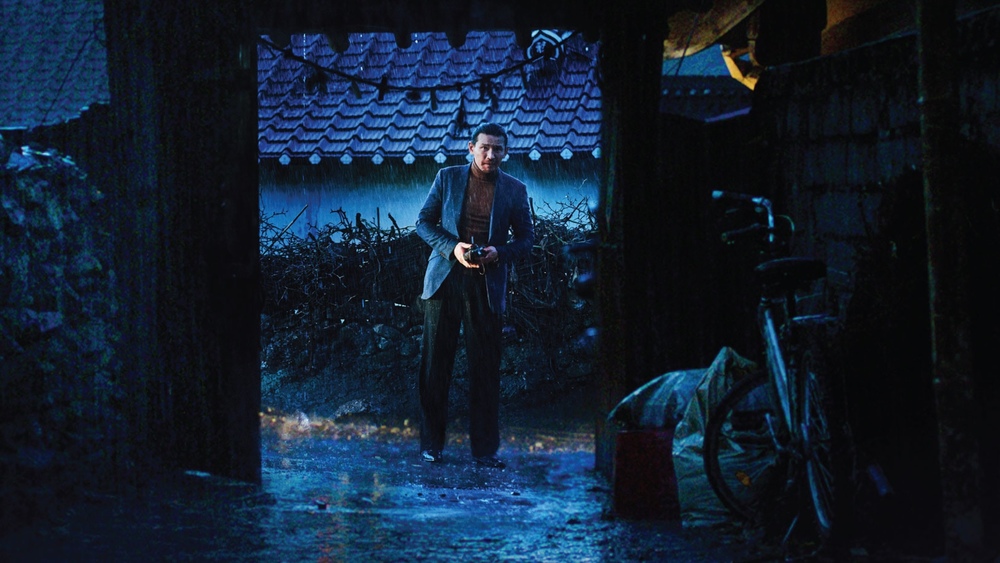
Running at 2 hours and 36 minutes, The Wailing can appear daunting to prospective viewers. This is especially true when you consider its status as a horror movie. Historically, the horror genre has been tightly paced, and for good reason. Leaner horror movies that use their runtimes effectively don’t waste time with unnecessary exposition or clunky dialogue. However, it’s unfair to generalize an entire genre, especially when you consider the fact that some films in the category use every second effectively. The Wailing is a perfect example.
Miraculously, The Wailing never feels like it’s overstaying its welcome. Perhaps it’s because it’s far more than your average horror movie. This isn’t just another Blumhouse haunted house movie after all. This is a genre-defying piece of work that happens to lean toward one genre without fully committing. Na Hong-jin isn’t content with crafting something one-note; he wants something with considerable grandeur.
Considering the sheer variety on display, it seems safe to conclude that Hong-jin accomplished his goals. There is a lot to unpack as you sit through this 156-minute epic, but none of it is boring or meaningless. As the story bounces from paranormal to body horror in a moment’s notice, you might feel like you’re falling behind, but The Wailing never leaves you hanging. Everything serves a purpose. Everything is logical. Most importantly, everything is entertaining as hell.